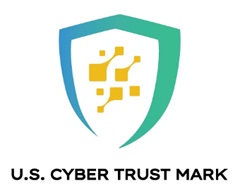FCC Proposal Would Create Voluntary Cybersecurity Label for Smart Devices
- By Kristal Kuykendall
- 07/24/23
Federal Communications Commission Chairwoman Jessica Rosenworcel has introduced a proposal to create a “voluntary cybersecurity labeling program” for smart devices in an effort to boost transparency and protection against cyber threats in the growing Internet of Things market.
 With an estimated 17 billion smart devices already in use and another 25 billion projected to be online by 2030, the Internet of Things represents a significant threat surface for cyber criminals — one that is already resulting in more malware attacks in the United States.
With an estimated 17 billion smart devices already in use and another 25 billion projected to be online by 2030, the Internet of Things represents a significant threat surface for cyber criminals — one that is already resulting in more malware attacks in the United States.
The threat is especially high in education, where smart devices range from speakers and smart displays to printers and vending machines: SonicWall revealed in April in its 2023 Cyber Threat Report that malware attacks targeting smart devices in K–12 schools rose 146% in 2022.
The draft proposal, called a Notice of Proposed Rulemaking, outlines the program, whichwould be established under the FCC’s authority to regulate wireless communications devices based on cybersecurity criteria developed by the National Institute of Standards and Technology, the FCC said on its website. If the proposal is approved by a vote of the full commission, it would then be posted for public comment, and “could be up and running by late 2024,” the FCC said.
The program would provide “clear information about the security of Internet-enabled devices” and products meeting the program’s requirements would bear a new U.S. Cyber Trust Mark, according to the announcement.
Such a labeling program “would help consumers make informed purchasing decisions, differentiate trustworthy products in the marketplace, and create incentives for manufacturers to meet higher cybersecurity standards,” the FCC said.
The proposal would seek input on issues “including the scope of devices for sale in the U.S. that should be eligible for inclusion in the labeling program, who should oversee and manage the program, how to develop the security standards that could apply to different types of devices, how to demonstrate compliance with those security standards, how to safeguard the cybersecurity label against unauthorized use, and how to educate consumers about the program,” the agency said.
Also unveiled by the FCC is the proposed U.S. Cyber Trust Mark logo, which would appear on packaging alongside a QR code that consumer can scan for further information; it is pending approval by the U.S. Patent and Trademark Office.
Learn more at FCC.gov.
About the Author
Kristal Kuykendall is editor, 1105 Media Education Group. She can
be reached at [email protected].